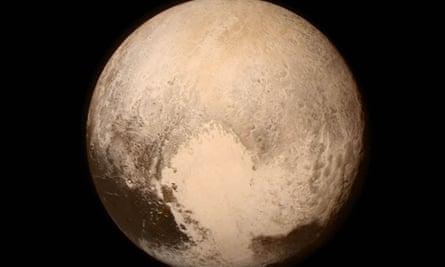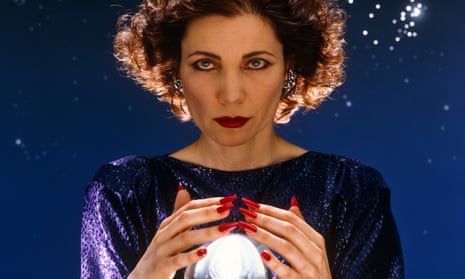I once wrote a spoof horoscope column for a short-lived comedy publication under the pseudonym “Mystic Bob”. Spoofing horoscopes is a comedy staple, and my own take on it was that given how most horoscopes are largely just a jumble of vague generalisations and unspecific predictions, I figured it would be funny to do ones that were almost terrifyingly precise. The juxtaposition of painstakingly detailed claims in the horoscope section struck me as inherently amusing, So much so that I even repurposed the idea for this very blog some years later.
Hilarious, right? But apparently my mockery was misplaced, what with the recent publication of an Observer article all about how millennials are flocking to astrology. That’ll show me and my snark.
Except it won’t. There are so many issues with the article and the numerous baffling, annoying, dubious claims it contains, none of which seem to be presented alongside or with links to any sort of evidence to back them up.
For instance, early on there’s this.
…it’s not uncommon to hear people in their late teens and 20s talking about, say, ‘Mercury in retrograde’ and ‘Saturn returns’ with confidence and authority. They know that a ‘star sign’ is a sun sign, and that for any half-decent attempt at a reading, you need to know your exact time and place of birth, so you can discuss, with equal reverence, the influence of your rising sign and moon sign, too.
I interact with many young people due to my various jobs, I even have teenage siblings of my own, and from the time I started using the internet myself as a teenager to the present day, I have never heard any young person utter anything like the phrases reported to be “not uncommon” here.
You might say sure, but that’s because I don’t interact with the right sort of young people. Maybe that’s true. But I’m not the one making the claims. You insist that young people are constantly talking about astrology, it’s on you to prove this. Sadly here, and everywhere else in the article, claims are made with zero visible effort to back them up. Far be it from me to suggest this is indicative of the approach favoured by astrology practitioners.

Then there’s this blinder.
‘I quickly drummed up a birth chart on astro-newbie favourite Café Astrology and read through it, thinking it sounded exactly like me, but was also full of contradictions,’ [astrology devotee Francesca Lisette] explains, and put its inconsistencies down to it being computer-generated.
If you look up “confirmation bias” in the dictionary, this passage should be printed alongside it. All the accurate information is 100% valid, but all the wrong bits are just flaws with the technology? Sure. No other possible explanation. Mindless behaviour of programmes and software doesn’t count, but if it’s stars and planets? That’s totally meaningful. Maybe it’s a matter of speed or scale? I’m no expert here.
Which brings us to this.
Sceptics will say that it is not science-based; practitioners will argue roots in astronomy and connections to quantum physics.
It’s weird how these “alternative” practices and beliefs invariably fall back on “ancient wisdom” and tradition when challenged, but readily invoke things like quantum physics when claiming legitimacy, a concept only really established in the 20th century.
But don’t take my word for it; here’s Dr Katie Mack, a “theoretical cosmologist specialising in the connections between astrophysics and particle physics”, also known on Twitter as @astrokatie. If ANYONE can explain the connection between stellar movements and quantum physics, it’s her:
“I think there’s a perception that the fundamental uncertainty inherent in quantum mechanics means all bets are off and anything can happen. On the scale of a single particle, like an electron, there’s massive room for a range of possibilities, but most of the time even in experimental physics you won’t actually see anything really wild happen. For anything involving actual human lives, the fact that a single electron might seem to be in two places at once really doesn’t affect us at all. The stars and planets are still too far away to influence us, telepathy doesn’t work, and everything we experience in our day-to-day lives can be explained by known, tested physics. We know this because we’ve tried in countless experiments to find any contradiction to this, and have always come up empty.”
It’s not like science hasn’t looked into the more fantastical claims; they often have, but have found nothing. This may be the best-case scenario though, as Mack elaborates:
“It would be fascinating but rather dystopian if the planets COULD affect our lives. Like, the ‘Mercury in retrograde’ thing. Like if the apparent motion across the sky, from Earth, of a planet we can almost never actually see, somehow meant that it, the planet, would suddenly start to meddle in our lives and screw things up for a time.”

Overall, there’s no evidence and even precious little logic to back up the claims made by astrology. Not that the article in question will have any truck with that. Apparently there’s plenty of proof, but sceptics aren’t willing to “extensively engage with astrology to see how it might relate to your life”. One wonders if any other field could get away with this approach? “Yes, my new diet pill DOES work, but you have to use it for years, and pay me for it, before I can explain it.” I can’t see the MHRA responding favourably to this tactic.
But what of the claim that it’s specifically millennials who are turning to astrology? It must be true, as, according to the article, “there is a thriving astrological community online, from Tumblr culture to YouTube astrologers”. Personally, given how there’s also a thriving Tumblr community for explicit Sonic the Hedgehog fan art, I wouldn’t read too much into that.
Maybe the claim is true? Maybe the modern world has become so chaotic and the younger generation is subjected to so much criticism and confusion that anything that offers some sense of order or control is going to be more alluring. If your locus of control is more external than internal, possibly because you’re constantly being told you need to buy a house with money you don’t have because there are no jobs that pay enough but it’s actually your fault for buying avocado toast, then astrology will undoubtedly be appealing. It absolves responsibility, it reassuringly (for some) suggests control and organisation by a “higher power”, it can take decisions out of your hands, it even provides social connections with like-minded types, which is particularly important for a young, still-developing brain. Similar arguments can be used for the enduring nature of conspiracy theories.
But invoking “millennials” and attributing dubious behaviours to them is a tired journalistic cliché. There are so many more flaws in the alarmingly one-sided non-critical product-placement-riddled evidence-free article that claims they’re flocking to astrology, but to me it reads like astrology is somewhat desperate to appeal to younger base, and obtain their money. Not that younger people have that much to spare.
But that’s just my view. I can’t really prove it. I’m just reading the signs.
Dean Burnett’s (heavily researched and referenced) new book The Happy Brain is out in the UK on May 3rd. His debut book The Idiot Brain is available, in the UK, the US and beyond
